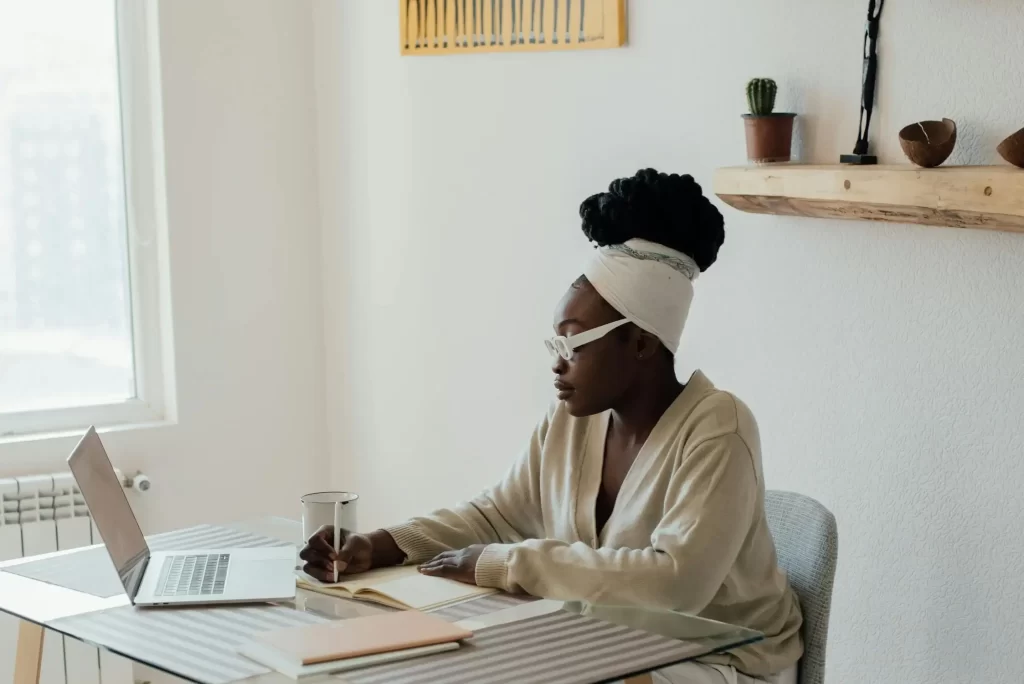By Alena Gerst, LCSW | Founder, Director, Psychotherapist
Anxiety doesn’t discriminate. It impacts all genders for a variety of reasons. For purposes of this article, we will be focusing on cisgendered women, though we want to note that anxiety is a well-documented struggle for people who identify as nonbinary and trans. While the symptoms are often similar, no matter who is affected, women-identified people might show different or additional signs.
If there’s a silver lining to anxiety, it’s that it’s often very manageable with the right help and support. But, it requires understanding your symptoms and recognizing that you need that help, to begin with.
With that in mind, let’s take a closer look at some of the common signs of anxiety in women, so you can know what to watch for, and when it’s time to get the help you deserve.
Is Anxiety More Common in Women?
Research has shown that cis-women are almost twice as likely to experience anxiety as their cis-male counterparts. There are several factors that can contribute to more anxious thoughts in women. Social norms and cultural expectations undoubtedly play a role. Hormonal influences and shifts might also have something to do with it.
That doesn’t necessarily mean you’ll develop anxiety just because you’re a woman. However, you should understand that you might be at a greater risk, so it’s important to not only understand some common symptoms, but also to listen when your mind and body are trying to tell you something.

Common Symptoms of Anxiety
Anxiety can affect nearly every area of your life. From an emotional standpoint, you’re likely to experience excessive worry, fear, restlessness, and mood swings. You might be more irritable than normal, and you might find it difficult to make decisions which can often stem from perfectionism that is so prevalent in women.
The emotional aspect of anxiety can influence your behaviors. It’s not uncommon for women with anxiety to avoid certain situations that trigger those negative thoughts, which is one of the most common ways people accommodate their anxiety. It’s ok to avoid some situations, but with anxiety, you want to be mindful if you are finding that your avoidance tendencies is impacting your social relationships and your quality of life.
You might also experience changes in your eating or sleeping habits due to anxiety, and have difficulty concentrating. As you might expect, these symptoms can have a negative impact on relationships, your career, and more.
The Physical Side of Anxiety
While anxiety is absolutely a mental health issue, some of the symptoms can manifest themselves physically.
Some of the most common physical signs of anxiety in women include muscle tension, headaches, stomach issues, dizziness, a racing heart, and trembling or shaking, trouble sleeping and concentrating.
Some women might experience these symptoms more frequently without an obvious trigger, while others might feel them when they’re triggered by a specific situation. Not all women experience anxiety in the same way, so recognizing the wide variety of symptoms that can occur (and at different severities) is important.

What Can You Do?
Recognizing that you’re dealing with anxiety is an essential first step in learning to cope and manage it. On your own, you can make self-care practices a part of your daily routine, which can not only get you through an anxious episode in the moment, but can also help to prevent or lessen the effects of anxiety attacks. Things like mindfulness, meditation, journaling, and even staying physically active can all help to reduce stress and make it easier to combat invasive, negative thoughts.
Having a strong support system is also crucial when you’re dealing with anxiety. Bottling up your emotions or being worried about appearing “too emotional” will most likely make things worse. Anxiety wants you to keep it a secret and feel shame. That way, you will not seek help to let anyone in on your struggle, for fear that you will appear weak or imperfect. And in that silence and darkness is where anxiety grows.
Working with a mental health professional can also help you get to the root cause of your anxiety, and help you develop proven and effective tools to help you become less anxious about having anxiety. Therapy can give you a better understanding of what’s triggering your anxiety, or what started it, which can start you out on the right foot when it comes to your healing journey. Therapy will also help you with symptom management, so you’ll feel more in control of your anxiety as you move forward.
Just remember, for many women, anxiety is a chronic lifelong condition. But with the right support, it can be treated and well-managed so you can get on with your life.




